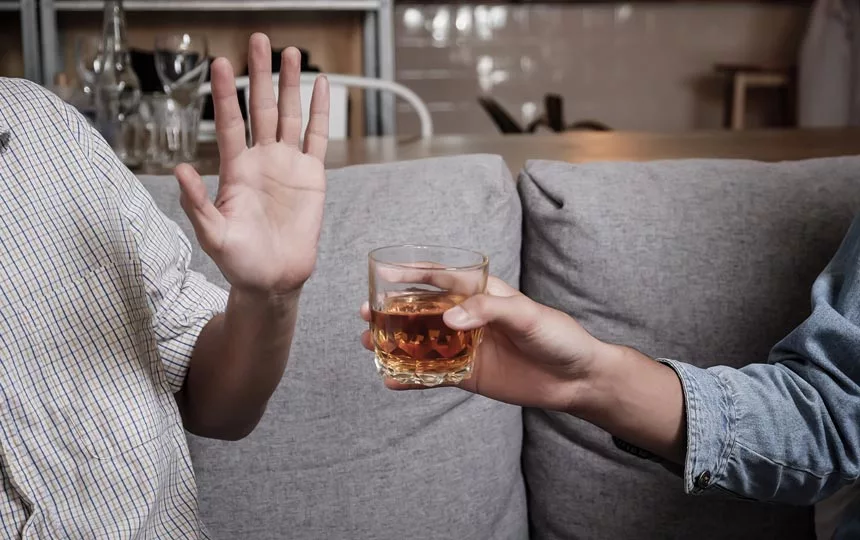For anyone who has ever tried to control or manage their use, it is no secret that cravings will usually be their downfall. As addicts, we struggle with impulse control and a constant romanticizing of drugs and alcohol, regardless of knowing the trouble that picking up will lead us to.
So, for anyone who is coming into recovery as a newcomer, one of the hardest, but most rewarding tools to learn is how to manage impulse control.
24 Hour Addiction Treatment Hotline – Get Help Now
(877) 633-0053
In the Beginning…
Table of Contents
Most of us don’t come into recovery, or 12 step rooms, with a whole lot of hope of staying sober. We haven’t yet seen the work that programs of recovery can do for those who truly work them. On the other hand, all we know is trying to stop using, or trying to at least control or cut back on our use, and failing miserably.
Our impulse control, in the past, was what had failed us. When things got tough, or when things got good, our instincts pushed us to grab that bottle or that pill, to celebrate or mourn. Over time, our using became our first nature, our daily ritual.
So in order to break that mental cycle for us, it is going to take a lot of practice, and retraining the mind. However, once the progress starts, and with a real willingness to keep going, anyone who is new to recovery can find that the thought of using eventually just disappears.
Benefits of Impulse Control
Not only is impulse control a useful tool in regards to drugs and alcohol, but it will also be useful for a whole slew of other reasons. Primarily, in early recovery, people notice that they are experiencing a lot of new emotions, new people, new activities, and this onslaught of new life can be really exciting.
However, these new things can lead a lot of people back to relapse, for example, relationships, money, shopping, perfection, eating, etc. So not only is impulse control important to remain sober from drugs and alcohol, it is also important to make sure that we are living balanced lives. Because for us, “if it isn’t one thing, it’s another.”
Learning to identify our impulses, either positive or negative, allows us to be able to plan, evaluate other options, and make healthy decisions. Being able to have a thought or feeling, not react to it immediately, and to respond rationally is a big step in both sobriety, and that whole, “adulting” thing people talk about.
How to Practice Impulse Control
Learning to manage our impulses takes time and practice. Anyone who has tried to go on a strict diet or workout regimen can attest to this, except with drugs and alcohol, it can be way more challenging. Here are some small tips and tricks to use in situations when impulsivity arises.
Physical Reminders:
In the rooms, they say, “Move a muscle, change a thought.”
- Smile!: smiling, laughing, or other mood-lifting activities have been scientifically proven to help strengthen willpower.
- Think about a time when you tried to control yourself from something. Did you sit there and sulk about it and think about how good that thing would be? Did you end up using because you wanted it so badly?
- Studies have shown that when people are able to change their perspective through a mood-lifting activity, rather than be sad or angry about it, they are far more likely not engage in the behavior.
- Hand Gestures: Studies report that using a hand gesture, such as a clenched fist, a snap, or hey, even jazz hands if you like, work similarly to the way that smiling does in strengthening willpower.
- The next time you want to go hang out at the bar “to play pool with friends”, try to instead smile at yourself, do a little jazz hands, and then walk away. If you don’t walk away laughing at how chaotic your mind just went over creating excuses to be around alcohol, move on to the next tool.
“Playing the Tape”:
There is a lot of research out there that proves the value of the Acceptance and Commitment Therapy method. This involves the person stopping before decision making, analyzing their thoughts and emotions, evaluating WHY they feel this way, and making a rational decision.
- It all starts with the “What”: for example, you are at a wedding and everyone is drinking.
- What are you telling yourself about the situation? In other words, “I feel left out, I really wish I could drink” or “Everyone probably thinks I’m weird for not drinking”
- What are the consequences of this thought process? “I can’t stand it anymore, I’m just going to have one”
- The trick to getting over this type of romanticising is to Play the Tape
- Are you really going to have just one? (probably not)
- Where is drinking going to lead you to tonight? (handcuffs, a stranger’s bed, harder drugs?)
- Are you willing to be uncomfortable for just a little while in order to maintain your sobriety?
- The gift of this type of mental retraining is that we learn impulse control through self-analyzation. WE get to choose whether we want to stay at the wedding, or if we feel too uncomfortable and need to leave. There is no shame in leaving a situation that we feel uncomfortable in.
Distraction:
A lot of therapeutic modalities tell us that we shouldn’t ignore bad feelings or emotions, and of course there is definite value to that. However, for alcoholics and addicts, this is life and death.
- If we come across a situation where we have cravings and are considering using, one of the best tricks to change the thought process is to avoid it all together, at least in the beginning.
- If you are considering picking up, try instead to call a friend, go to a coffee shop, go for a run, or a walk, make yourself something to eat, or go to a meeting. This ties into that “move a muscle, change a thought” mentality.
Create New Routines:
Using drugs and alcohol stopped being fun when we HAD to do it. Part of the struggle in sobriety is relearning how to live our lives again, without picking up. Take cigarettes as an example, first thing in the morning, with coffee, in the car, after meals, on break, in stress, etc. etc.
- Our using became routine, upon awakening, when withdrawals happen, to celebrate, before we had to do anything at all.
- It is important to create new rituals and routines. For example, if you used right when you woke up, take a shower right when you wake up. If you used before you went to work, blast music and dance around the house for ten minutes instead. Whatever you need to do to reprogram the mind and body.
Relapse does not have to be inevitable. Impulse control is possible. It is not always easy, but our impulses do not have to control us forever. Start by practicing any of these small tricks every time you get a craving or a romanticising thought, and then go to a meeting!
24 Hour Substance Abuse Hotline – Get Help Now
(877) 633-0053
Freedom From Addiction
If you or a loved one is suffering from alcoholism or addiction, understand that you are not alone in your struggles! If you are ready to change your life and finally be free of your addiction, then Find Addiction Rehabs can help. We can give you the jump start you need in order to experience the recovery you have always wanted. Our holistic programsare unique in that they don’t just treat the addiction, but rather they treat the whole person, so if you are interested in finding out more information, please do not hesitate togive us a call today at 1-(877) 633-0053.
Anna M. joined Find Addiction Rehabs with extensive experience in the field of addiction treatment. As a former Nurse Practitioner in Miami, she found her passion for addiction treatment when a family member was lost to his disease. With each article and resource, she hopes to save other families from experiencing the anguish of a loved one’s passing due to drinking or drugs.



